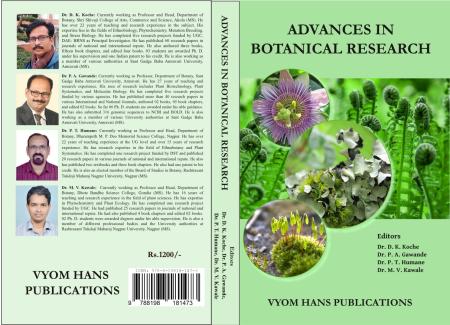TRADITIONAL KNOWLEDGE AND SOCIO-ECONOMIC VALUES OF IMPORTANT PLANT SPECIES IN FOREST FRINGES OF GONDIA DISTRICT (MS), INDIA
Synopsis
This study investigates the role of economically important wild plants in supporting the livelihoods of forest dwellers in selected villages in Gondia Tehsil, focusing on plant materials used for both subsistence and income generation. A variety of forest plants such as Dendrocalamus strictus (bamboo), Madhuca longifolia (mahua), Termitomyces sp. (edible mushrooms), Buchanania lanzan, Phoenix sylvestris, and Diospyros melanoxylon (tendu leaf) were identified as key resources. These plants are harvested for personal use and commercial purposes, providing substantial income to rural households, particularly for the poorest segments of the population. The study found that forest residents are heavily reliant on forest products, with the peak season for collection spanning from February to June. Various socioeconomic factors, such as gender and economic status, were considered in analyzing participation in plant collection activities. The study's findings highlight the economic significance of these forest materials, especially in areas where agriculture is not a reliable source of livelihood due to poor land quality. The forest products are often sold in local markets, contributing to the financial sustainability of the community. This research underscores the crucial role that wild plants play in the socioeconomic development of forest-dependent communities, particularly in rural and underdeveloped regions.
Keywords : Traditional Knowledge, Forest Products, Socioeconomic factors.





